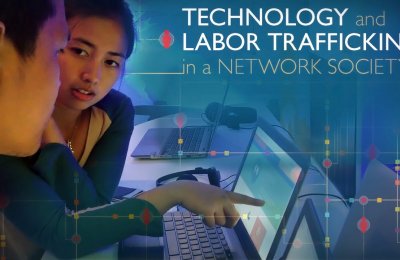By Alex Boekelheide
Mexican actor Diego Luna has lived his whole life straddling borders -- between childhood and adulthood, between Mexico and the U.S., and between acting and activism. Through it all, he has survived by using cinema as a vehicle for self-expression.
Luna discussed his journeys across these borders at Bovard Auditorium Monday night, as the featured speaker in the third installment in the USC Annenberg Distinguished Lecture Series on Latin American Arts and Culture. The speaker series, which has featured singers Julieta Venegas and Manu Chao, examines current issues from a Latin American perspective.
Hosted by communication professor Josh Kun, the conversation with Luna ranged from his childhood growing up in an artistic family in Mexico to his own experiences with fatherhood. Throughout, Luna charmed the audience with his endearing attitude and engaging stories of his life and career.
After making his debut as a preteen in Mexican telenovelas, Luna first came to widespread attention for his role as a sexually obsessed adolescent in 2001's "Y Tu Mamá También" alongside Gael Garcia Bernal. In the years since, he has continued to work in show business, acting in movies such as "Frida" and "Milk" and co-founding a production company, Canana Productions, with Bernal and Pablo Cruz. He has also turned to directing, with his feature directoral debut, "Abel," slated to appear in U.S. theaters in March.
It was "Abel" that kicked off the discussion, with Kun drawing parallels between the film's protagonist -- a ten-year-old boy who steps into the role his father has abandoned -- and Luna, who was expected to grow up quickly after his mother died when he was only two. After screening the trailer for the film, Kun wondered if the film made a comment on the nature of fatherhood. "Were you trying to answer how it felt to be 'El Hombre'?" he asked.

"In Mexico, you have broken families, with just little kids and women running the show," he said. "We have to change that in order to give kids the chance to be kids for a long time. We're pushing kids to become adults before they should.
"The film is about that," he continued. "A mother that fights for the chance to be next to her kids, and the wound that the absence of a father leaves on a house."
As a prominent member of a young group of rising Mexican filmmakers, Luna is a strong believer in the power of film to connect people. Four years ago, he and his producing partners co-founded the Ambulante documentary film festival, providing free screenings of documentaries in and about Mexico across the country. By exposing more of Mexico's citizenry to films with a message, Luna and his partners hope to promote filmmaking as a social movement.
"I believe we've treated the audience for many years as if they were not sophisticated enough, and we lost the audience," he said. "Cinema suddenly became a thing of festivals, and just a few people were able to watch it. It took a lot of effort and a lot of finding the way to reconnect with the audience, and today there's a reunion happening. We're getting in love with them again, and that's amazing."

"Acting has to work as a mirror or it has no point of existing," Luna replied. "For me, when I work, it's about getting attention to the issues that matter to you. I grew up in a country where we were raised with the word "crisis" is part of our system. I got used to living in a world where you had an excuse to not make it."
"I believe that cinema can help," he said. "I believe that cinema can be a structure that shows us each other's faces and say, 'Damn, I don't want to look like that.'"
The USC Annenberg Distinguished Lecture Series on Latin American Arts and Culture is presented in association with USC Spectrum and the USC Mexican American Alumni Association.







